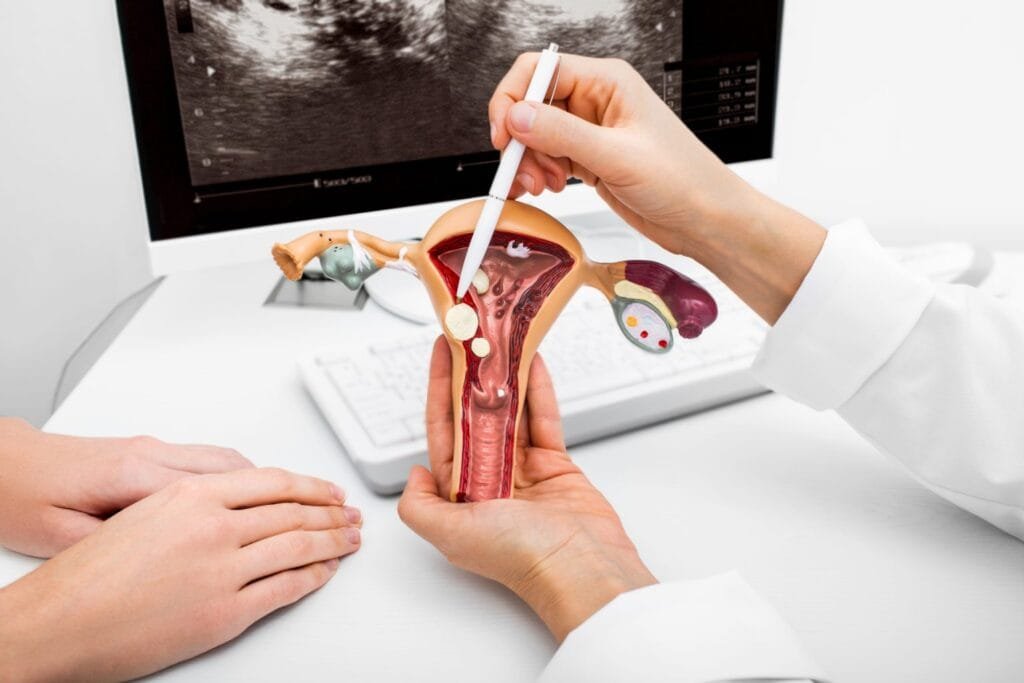The idea of a gynecological exam can stir up anxiety—especially if you’re unsure what it feels like or what really happens during the visit. Is it painful, awkward, or just routine? The truth may not be what you expect. Knowing what a gynecological exam involves can ease your nerves and help you feel more prepared.
Book an appointment with a top gynecologist in Queens NY

Is a Gynecological Exam Painful?
For most women, a gynecological exam is not painful, though it may cause brief moments of discomfort. Common sensations include pressure or a feeling of fullness, particularly during the insertion of a speculum or while the healthcare provider performs a bimanual examination to assess the reproductive organs.
While these sensations are normal, significant pain is not. If you experience sharp or intense pain during the exam, it’s important to let your provider know. Pain could signal an underlying issue such as pelvic floor tension, infection, or another medical condition that may need further evaluation.
Pain-Free Exam (Most Common Case)
For most women, gynecological exams are not painful. Many report the experience as quick and manageable, especially those who are sexually active or accustomed to using tampons. Healthcare providers take several steps to promote comfort and minimize any potential discomfort.
Making the exam as pain-free as possible:
- Use of appropriate-sized instruments to fit each patient’s anatomy comfortably.
- Application of lubricants to reduce friction and ease the insertion of instruments.
- Clear communication throughout the exam to explain each step and help the patient feel more at ease.
These simple yet effective measures contribute to a routine, pain-free experience in the vast majority of cases.
Mild Discomfort Due to Tension or Nervousness
Feeling anxious before a gynecological exam is common, but that nervousness can lead to physical tension—especially in the pelvic floor muscles. When these muscles are tight, the sensations during the exam can feel more intense, resulting in mild discomfort.
Fortunately, there are simple strategies that can help ease this tension and improve your comfort:
- Practice deep breathing to help calm your body and mind.
- Try relaxation techniques such as progressive muscle relaxation or guided imagery.
- Communicate openly with your provider about how you’re feeling so they can proceed gently and offer reassurance.
Pain from Sensitivity or Vaginismus
Some women may experience sharp pain during a gynecological exam due to heightened sensitivity or a condition known as vaginismus. Vaginismus involves the involuntary tightening of the vaginal muscles, which can make any form of penetration—such as during an exam—painful or even impossible.
This muscle response can significantly interfere with the exam process, leading to discomfort or preventing the procedure altogether. If this occurs, it’s important to speak openly with your healthcare provider, as there are effective treatment options available.
These may include:
- Pelvic floor physical therapy to help relax and retrain the muscles,
- Counseling to address any emotional or psychological factors contributing to the response,
- Topical anesthetics, which may be recommended in some cases to reduce pain during the exam.
Pain Due to Infection or Irritation
Pain during a gynecological exam can sometimes be caused by underlying infections or irritation. Common conditions such as yeast infections, bacterial vaginosis, or urinary tract infections often lead to inflammation, swelling, and increased sensitivity in the vaginal and pelvic areas. This inflammation can make even routine parts of the exam—like inserting a speculum or performing a bimanual examination—feel unusually uncomfortable or even painful.
If you’re experiencing symptoms such as unusual discharge, itching, burning, soreness, or pelvic discomfort, it may be a sign of an infection. It’s important to inform your healthcare provider ahead of time if you suspect anything abnormal. Doing so enables them to adjust their examination approach—by being extra gentle, using additional lubrication, or limiting certain parts of the exam—to help reduce your discomfort.
In some cases, the provider may recommend postponing the exam or specific procedures until the infection has been properly treated. This helps ensure both your comfort and safety, and allows for a more accurate assessment once symptoms have resolved.
Exam with Biopsy (Moderate Discomfort)
Gynecological exams that include cervical or endometrial biopsies involve the removal of small tissue samples for laboratory analysis. These procedures are essential for diagnosing certain conditions, but they can also cause moderate discomfort or cramping, especially at the moment the sample is collected.
Pain levels vary widely between individuals and are often influenced by factors such as personal pain tolerance, emotional state, and anxiety. While some people experience only mild pressure or brief cramping, others may feel more intense sensations that last a bit longer.
How to manage discomfort:
- Take over-the-counter pain relievers (such as ibuprofen) before the appointment, if recommended by your provider.
- Practice relaxation techniques like deep breathing or guided imagery to ease muscle tension and reduce anxiety.
- Discuss pain management options in advance with your healthcare provider. They can offer personalized guidance to help make the experience as comfortable as possible.
Clear communication and preparation can make a significant difference. If you’re feeling nervous or have concerns about pain, don’t hesitate to speak up—your provider can adjust their approach to support your comfort throughout the procedure.
Sources.
Hassan, H. E., Eid, S. R., Hassan, A., & Abou-Shabana, K. R. (2022). Study women’s knowledge, pain, discomfort, and satisfaction during first gynecological examination. Am J Med Sci Med, 1(1), 23-33.
Bal, Z., Ucar, T., & Kantar, E. C. (2022). Women’s feeling of discomfort during vaginal examination and related factors. Middle Black Sea Journal of Health Science, 8(2), 269-278.

